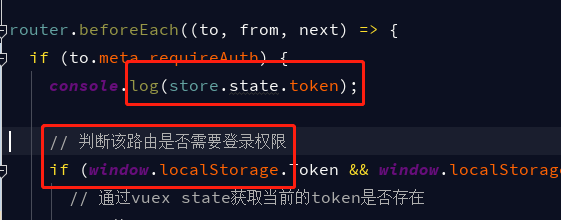What is the easiest way to convert the result of Throwable.getStackTrace() to a string that depicts the stacktrace?
问题:
回答1:
One can use the following method to convert an Exception stack trace to String. This class is available in Apache commons-lang which is most common dependent library with many popular open sources
org.apache.commons.lang.exception.ExceptionUtils.getStackTrace(Throwable)
回答2:
Use Throwable.printStackTrace(PrintWriter pw) to send the stack trace to an appropriate writer.
import java.io.StringWriter;
import java.io.PrintWriter;
// ...
StringWriter sw = new StringWriter();
PrintWriter pw = new PrintWriter(sw);
e.printStackTrace(pw);
String sStackTrace = sw.toString(); // stack trace as a string
System.out.println(sStackTrace);
回答3:
This should work:
StringWriter sw = new StringWriter();
e.printStackTrace(new PrintWriter(sw));
String exceptionAsString = sw.toString();
回答4:
If you are developing for Android, a far easier way is to use this:
import android.util.Log;
String stackTrace = Log.getStackTraceString(exception);
The format is the same as getStacktrace, for e.g.
09-24 16:09:07.042: I/System.out(4844): java.lang.NullPointerException 09-24 16:09:07.042: I/System.out(4844): at com.temp.ttscancel.MainActivity.onCreate(MainActivity.java:43) 09-24 16:09:07.042: I/System.out(4844): at android.app.Activity.performCreate(Activity.java:5248) 09-24 16:09:07.043: I/System.out(4844): at android.app.Instrumentation.callActivityOnCreate(Instrumentation.java:1110) 09-24 16:09:07.043: I/System.out(4844): at android.app.ActivityThread.performLaunchActivity(ActivityThread.java:2162) 09-24 16:09:07.043: I/System.out(4844): at android.app.ActivityThread.handleLaunchActivity(ActivityThread.java:2257) 09-24 16:09:07.043: I/System.out(4844): at android.app.ActivityThread.access$800(ActivityThread.java:139) 09-24 16:09:07.043: I/System.out(4844): at android.app.ActivityThread$H.handleMessage(ActivityThread.java:1210) 09-24 16:09:07.043: I/System.out(4844): at android.os.Handler.dispatchMessage(Handler.java:102) 09-24 16:09:07.043: I/System.out(4844): at android.os.Looper.loop(Looper.java:136) 09-24 16:09:07.044: I/System.out(4844): at android.app.ActivityThread.main(ActivityThread.java:5097) 09-24 16:09:07.044: I/System.out(4844): at java.lang.reflect.Method.invokeNative(Native Method) 09-24 16:09:07.044: I/System.out(4844): at java.lang.reflect.Method.invoke(Method.java:515) 09-24 16:09:07.044: I/System.out(4844): at com.android.internal.os.ZygoteInit$MethodAndArgsCaller.run(ZygoteInit.java:785) 09-24 16:09:07.044: I/System.out(4844): at com.android.internal.os.ZygoteInit.main(ZygoteInit.java:601)
回答5:
WARNING: Does not include cause (which is usually the useful bit!)
public String stackTraceToString(Throwable e) {
StringBuilder sb = new StringBuilder();
for (StackTraceElement element : e.getStackTrace()) {
sb.append(element.toString());
sb.append(\"\\n\");
}
return sb.toString();
}
回答6:
Guava\'s Throwables class
If you have the actual Throwable instance, Google Guava provides Throwables.getStackTraceAsString().
Example:
String s = Throwables.getStackTraceAsString ( myException ) ;
回答7:
For me the cleanest and easiest way was:
import java.util.Arrays;
Arrays.toString(e.getStackTrace());
回答8:
Inspired by @Brian Agnew:
public static String getStackTrace(Throwable t) {
StringWriter sw = new StringWriter();
t.printStackTrace(new PrintWriter(sw));
return sw.toString();
}
回答9:
The following code allows you to get the entire stackTrace with a String format, without using APIs like log4J or even java.util.Logger:
catch (Exception e) {
StackTraceElement[] stack = e.getStackTrace();
String exception = \"\";
for (StackTraceElement s : stack) {
exception = exception + s.toString() + \"\\n\\t\\t\";
}
System.out.println(exception);
// then you can send the exception string to a external file.
}
回答10:
Here is a version that is copy-pastable directly into code:
import java.io.StringWriter;
import java.io.PrintWriter;
//Two lines of code to get the exception into a StringWriter
StringWriter sw = new StringWriter();
new Throwable().printStackTrace(new PrintWriter(sw));
//And to actually print it
logger.info(\"Current stack trace is:\\n\" + sw.toString());
Or, in a catch block
} catch (Throwable t) {
StringWriter sw = new StringWriter();
t.printStackTrace(new PrintWriter(sw));
logger.info(\"Current stack trace is:\\n\" + sw.toString());
}
回答11:
Printing stack trace to string
import java.io.PrintWriter;
import java.io.StringWriter;
public class StackTraceUtils {
public static String stackTraceToString(StackTraceElement[] stackTrace) {
StringWriter sw = new StringWriter();
printStackTrace(stackTrace, new PrintWriter(sw));
return sw.toString();
}
public static void printStackTrace(StackTraceElement[] stackTrace, PrintWriter pw) {
for(StackTraceElement stackTraceEl : stackTrace) {
pw.println(stackTraceEl);
}
}
}
It\'s useful when you want to print the current thread stack trace without creating instance of Throwable - but note that creating new Throwable and getting stack trace from there is actually faster and cheaper than calling Thread.getStackTrace.
回答12:
Print the stacktrace to a PrintStream, then convert it to a String
// ...
catch (Exception e)
{
ByteArrayOutputStream out = new ByteArrayOutputStream();
e.printStackTrace(new PrintStream(out));
String str = new String(out.toByteArray());
System.out.println(str);
}
回答13:
private String getCurrentStackTraceString() {
StackTraceElement[] stackTrace = Thread.currentThread().getStackTrace();
return Arrays.stream(stackTrace).map(StackTraceElement::toString)
.collect(Collectors.joining(\"\\n\"));
}
回答14:
Arrays.toString(thrown.getStackTrace())
Is the easiest way to convert the result into String I am using this in my program to print the stack trace
LOGGER.log(Level.SEVERE, \"Query Builder Issue Stack Trace : {0} ,Message : {1} objid {2}\", new Object[]{Arrays.toString(e.getStackTrace()), e.getMessage(),objId});
回答15:
Code from Apache Commons Lang 3.4 (JavaDoc):
public static String getStackTrace(final Throwable throwable) {
final StringWriter sw = new StringWriter();
final PrintWriter pw = new PrintWriter(sw, true);
throwable.printStackTrace(pw);
return sw.getBuffer().toString();
}
The difference with the other answers is that it uses autoFlush on the PrintWriter.
回答16:
The clever sniping in the first set of comments was very amusing, but it really depends on what you are trying to do. If you don\'t already have the correct library, then 3 lines of code (as in D. Wroblewski\'s answer) is perfect. OTOH, if you already have the apache.commons library (as most large projects will), then Amar\'s answer is shorter. OK, it might take you ten minutes to get the library and install it correctly (less than one if you know what you\'re doing). But the clock is ticking, so you may not have the time to spare. Jarek Przygódzki had an interesting caveat--\"If you don\'t need nested exceptions\".
But what if I do need the full stack traces, nested and all? In that case, the secret is to use apache.common\'s getFullStackTrace (see http://commons.apache.org/proper/commons-lang/javadocs/api-2.6/org/apache/commons/lang/exception/ExceptionUtils.html#getFullStackTrace%28java.lang.Throwable%29)
It saved my bacon. Thanks, Amar, for the hint!
回答17:
Kotlin
Extending the Throwable class will give you the String property error.stackTraceString:
val Throwable.stackTraceString: String
get() {
val sw = StringWriter()
val pw = PrintWriter(sw)
this.printStackTrace(pw)
return sw.toString()
}
回答18:
Without java.io.* it can be done like this.
String trace = e.toString() + \"\\n\";
for (StackTraceElement e1 : e.getStackTrace()) {
trace += \"\\t at \" + e1.toString() + \"\\n\";
}
And then the trace variable holds your stack trace. Output also holds the initial cause, the output is identical to printStackTrace()
Example, printStackTrace() yields:
java.io.FileNotFoundException: / (Is a directory)
at java.io.FileOutputStream.open0(Native Method)
at java.io.FileOutputStream.open(FileOutputStream.java:270)
at java.io.FileOutputStream.<init>(FileOutputStream.java:213)
at java.io.FileOutputStream.<init>(FileOutputStream.java:101)
at Test.main(Test.java:9)
The trace String holds, when printed to stdout
java.io.FileNotFoundException: / (Is a directory)
at java.io.FileOutputStream.open0(Native Method)
at java.io.FileOutputStream.open(FileOutputStream.java:270)
at java.io.FileOutputStream.<init>(FileOutputStream.java:213)
at java.io.FileOutputStream.<init>(FileOutputStream.java:101)
at Test.main(Test.java:9)
回答19:
an exapansion on Gala\'s answer that will also include the causes for the exception:
private String extrapolateStackTrace(Exception ex) {
Throwable e = ex;
String trace = e.toString() + \"\\n\";
for (StackTraceElement e1 : e.getStackTrace()) {
trace += \"\\t at \" + e1.toString() + \"\\n\";
}
while (e.getCause() != null) {
e = e.getCause();
trace += \"Cause by: \" + e.toString() + \"\\n\";
for (StackTraceElement e1 : e.getStackTrace()) {
trace += \"\\t at \" + e1.toString() + \"\\n\";
}
}
return trace;
}
回答20:
if you are using java 8, try this
Arrays.stream(e.getStackTrace())
.map(s->s.toString())
.collect(Collectors.joining(\"\\n\"));
you can find the code for getStackTrace() function provided by Throwable.java as :
public StackTraceElement[] getStackTrace() {
return getOurStackTrace().clone();
}
and for StackTraceElement, it providers toString as:
public String toString() {
return getClassName() + \".\" + methodName +
(isNativeMethod() ? \"(Native Method)\" :
(fileName != null && lineNumber >= 0 ?
\"(\" + fileName + \":\" + lineNumber + \")\" :
(fileName != null ? \"(\"+fileName+\")\" : \"(Unknown Source)\")));
}
So just join the StackTraceElement with \"\\n\"
回答21:
My oneliner to convert stack trace to the enclosed multi-line string:
Stream.of(e.getStackTrace()).map((a) -> a.toString()).collect(Collectors.joining(\"\\n\", \"[\", \"]\"))
Easy to pass to the logger \"as is\".
回答22:
The solution is to convert the stackTrace of array to string data type. See the following example:
import java.util.Arrays;
try{
}catch(Exception ex){
String stack = Arrays.toString(ex.getStackTrace());
System.out.println(\"stack \"+ stack);
}
回答23:
If you don\'t want to use an external library and you\'re not developing for Android, you could create an \'extension\' method like this:
public static String getStackTraceString(Throwable e) {
return getStackTraceString(e, \"\");
}
private static String getStackTraceString(Throwable e, String indent) {
StringBuilder sb = new StringBuilder();
sb.append(e.toString());
sb.append(\"\\n\");
StackTraceElement[] stack = e.getStackTrace();
if (stack != null) {
for (StackTraceElement stackTraceElement : stack) {
sb.append(indent);
sb.append(\"\\tat \");
sb.append(stackTraceElement.toString());
sb.append(\"\\n\");
}
}
Throwable[] suppressedExceptions = e.getSuppressed();
// Print suppressed exceptions indented one level deeper.
if (suppressedExceptions != null) {
for (Throwable throwable : suppressedExceptions) {
sb.append(indent);
sb.append(\"\\tSuppressed: \");
sb.append(getStackTraceString(throwable, indent + \"\\t\"));
}
}
Throwable cause = e.getCause();
if (cause != null) {
sb.append(indent);
sb.append(\"Caused by: \");
sb.append(getStackTraceString(cause, indent));
}
return sb.toString();
}
回答24:
Old question, but I would just like to add the special case where you don\'t want to print all the stack, by removing some parts you are not actually interested in, excluding certain classes or packages.
Instead of a PrintWriter use a SelectivePrintWriter:
// This filters out this package and up.
String packageNameToFilter = \"org.springframework\";
StringWriter sw = new StringWriter();
PrintWriter pw = new SelectivePrintWriter(sw, packageNameToFilter);
e.printStackTrace(pw);
String sStackTrace = sw.toString();
System.out.println(sStackTrace);
Where the SelectivePrintWriter class is given by:
public class SelectivePrintWriter extends PrintWriter {
private boolean on = true;
private static final String AT = \"\\tat\";
private String internal;
public SelectivePrintWriter(Writer out, String packageOrClassName) {
super(out);
internal = \"\\tat \" + packageOrClassName;
}
public void println(Object obj) {
if (obj instanceof String) {
String txt = (String) obj;
if (!txt.startsWith(AT)) on = true;
else if (txt.startsWith(internal)) on = false;
if (on) super.println(txt);
} else {
super.println(obj);
}
}
}
Please note this class may be easily adapted to filter out by Regex, contains or other criteria. Also note it depends upon Throwable implementation details (not likely to change, but still).
回答25:
import java.io.PrintWriter;
import java.io.StringWriter;
public class PrintStackTrace {
public static void main(String[] args) {
try {
int division = 0 / 0;
} catch (ArithmeticException e) {
StringWriter sw = new StringWriter();
e.printStackTrace(new PrintWriter(sw));
String exceptionAsString = sw.toString();
System.out.println(exceptionAsString);
}
}
}
When you run the program, the output will be something similar:
java.lang.ArithmeticException: / by zero
at PrintStackTrace.main(PrintStackTrace.java:9)
回答26:
Warning: This may be a bit off topic, but oh well... ;)
I don\'t know what the original posters reason was for wanting the stack trace as string in the first place. When the stack trace should end up in an SLF4J/Logback LOG, but no exception was or should be thrown here\'s what I do:
public void remove(List<String> ids) {
if(ids == null || ids.isEmpty()) {
LOG.warn(
\"An empty list (or null) was passed to {}.remove(List). \" +
\"Clearly, this call is unneccessary, the caller should \" +
\"avoid making it. A stacktrace follows.\",
getClass().getName(),
new Throwable (\"Stacktrace\")
);
return;
}
// actual work, remove stuff
}
I like it because it does not require an external library (other than your logging backend, which will be in place most of the time anyway, of course).
回答27:
Few options
StringWriter sw = new StringWriter(); e.printStackTrace(new PrintWriter(sw)); String exceptionAsString = sw.toString();Using Google Guava lib
String stackTrace = Throwables.getStackTraceAsString ( myException ) ;org.apache.commons.lang.exception.ExceptionUtils.getStackTrace(Throwable)
回答28:
Use exp.printStackTrace() for displaying stack of your exception.
try {
int zero = 1 - 1;
int a = 1/zero;
} catch (Exception e) {
e.printStackTrace();
}


